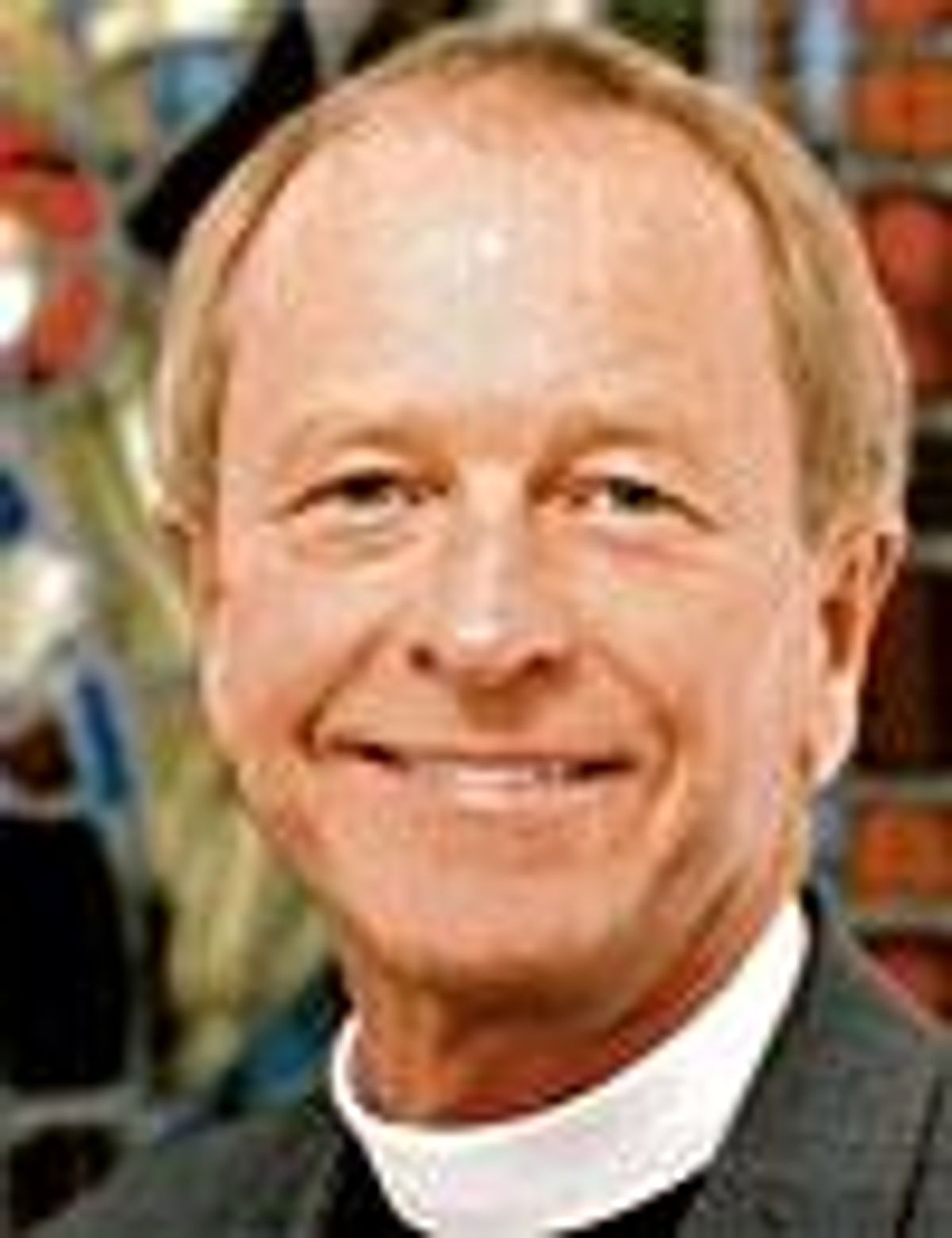In an e-mail
written from a treatment center, the Episcopal Church's
first openly gay bishop, V. Gene Robinson of Concord, N.H.,
said he is receiving treatment for alcoholism. For
years, Robinson said in the e-mail sent to clergy, he
considered it "a failure of will or discipline on my
part, rather than a disease over which my particular
body simply has no control, except to stop drinking altogether."
The news, made public Tuesday, caught many
Episcopalians by surprise. Robinson, 58, said he
checked into the undisclosed center February 1 with
the support of his partner, daughters, and colleagues. "I
never saw it in any way impact his ministry in the
diocese," said Robinson's assistant, the Reverend Tim Rich.
Robinson was his predecessor's top assistant for
years and was elected to replace him when he retired
in 2003 by clergy and lay people in the diocese. He
was confirmed by the national church, causing an upheaval
not only in the Episcopal Church but the worldwide
Anglican Communion of which it is part.
David Virtue of West Chester, Pa., who opposed
Robinson's election and runs an online news service he
describes as a global voice for orthodox Anglicans,
said Robinson should have revealed his problem earlier.
"Why now? Why didn't we know this [then]?" he said. "What
happened to the discernment process?"
Other critics, though, reacted differently. "I'm
glad he's getting help. None of us are perfect," said
Lisa Ball, who opposed Robinson's selection and was
part of a group in Rochester, N.H., that broke
away from the diocese and started a new church.
The Reverend David Jones, who cochaired the
bishop search committee, said thorough background
checks were performed on all the candidates for
bishop, including criminal checks and interviews with former
employers and others. Finalists also were asked if
there was anything in their past that would embarrass
them or the diocese if it came to light, and Robinson
did not say he was an alcoholic, Jones said. "For all I
know, at that point he didn't have a problem," Jones said.
Several Episcopalians said Robinson is
demonstrating his integrity by going public with his
problem. "It takes a lot of guts," said David Moberg,
who serves on the diocesan governing board known as the
standing committee. "He probably could have hidden it, but
this is the kind of person he is. He's open."
Rich said Robinson's growing awareness of his
problem, rather than a crisis, led to his decision.
Rich said Robinson told him his treatment at an
undisclosed location is going well. "This is hard, hard
work, but he's in good spirits," Rich said.
The Episcopal Church, based in New York, lets
dioceses handle such matters and referred calls about
Robinson to New Hampshire. Between diocesan
conventions, the elected standing committee, which includes
both priests and lay leaders, usually decides
administrative questions, including handling a
bishop's absence.
The diocese's standing committee issued a
statement supporting Robinson. "We commend him for his
courageous example to us all, as we pray daily for him
and for his ministry among us," the committee said.
(AP)


















































































